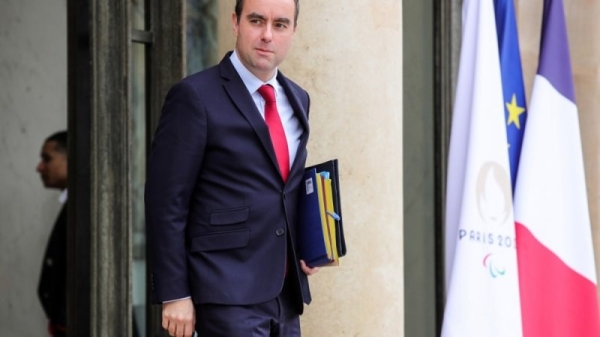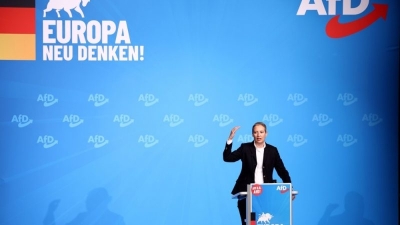France ‘would not rule out’ requisitions to speed up arms production, defence minister says

France is prepared to requisition “personnel, stocks or production tools” to accelerate the production of armaments by the domestic industry, the Minister for Armed Forces Sébastien Lecornu said on Tuesday (26 March).
“For the first time, I’m not ruling out (…), if things are not on track in terms of production rate and lead times, to make requisitions if necessary or to use the right of prioritisation,” Lecornu said at a press conference on Tuesday.
These requisitions could concern personnel, stocks, and other production tools, or require manufacturers to give priority to military requirements over civilian needs, the minister said.
France could “within the next few weeks” give priority to military orders over civilian requirements, and impose minimum stock levels on certain manufacturers, he added.
EU member states have recently started stepping up efforts towards a ‘war economy mode’ for the bloc after the European Commission last month proposed a Defence Industry Programme (EDIP) to revamp the bloc’s military-industrial complex to support European and Ukrainian military needs for the long haul.
Key measures of the EU’s plans feature reserves of supply, as well as priority-rated orders – a mechanism whereby defence industries would get priority in case a shortage of civilian or dual-use components should threaten the availability of defence supply.
The latter was rejected by EU countries last year in the context of the negotiations of the Act in Support of Ammunition (ASAP) to help boost ammo production across the bloc.
The French military defence bill for 2024-2030, voted in August, states that in the event of an “actual or foreseeable threat to activities essential to the life of the nation”, or a threat to “the protection of the population”, the government can decide on the requisition of any person, natural or legal, and of all the goods and services necessary.
Such a war effort could be justified by the tense “security context”, Lecornu said.
“The war in Ukraine has thrown us back into a form of Cold War (…) against the backdrop of Russia’s nuclear arsenal.”
Lecornu also referred to a heightened level of a “terrorist threat”, following the attack in Russia last week, which killed almost 140 people.
War economy mode
French President Emmanuel Macron said in January the European defence industry should be “in war economy mode, with a faster and stronger production capacity”.
“If production rates are sometimes too slow, it’s because there’s a temptation to work on a just-in-time basis and not hold sufficient stocks of raw materials or components”, to avoid tying up cash needed to build up these stocks, Lecornu said.
The French defence minister also complained that the delivery times for the Aster long-range anti-aircraft missile, produced between France and Italy, are too long.
“The question of MBDA’s subcontractors prioritising the military order for the Aster missile over a civilian order is obviously something we can look at completely,” he said.
France ordered 200 Aster missiles in January 2023 for €900 million, with delivery scheduled for 2026. These missiles, which according to Lecornu, “were not previously used or were just used for training purposes”, are now being supplied to Ukraine.
“We now have concrete operational contracts on which we are bidding,” he said, announcing an “advance order” for 200 additional Aster missiles.

Biden signs $1.2 trillion US spending bill not including Ukraine aid
US President Joe Biden on Saturday (23 March) signed into law a $1.2 trillion spending package, keeping the US government funded through a fiscal year that began six months ago.
Read more with Euractiv




